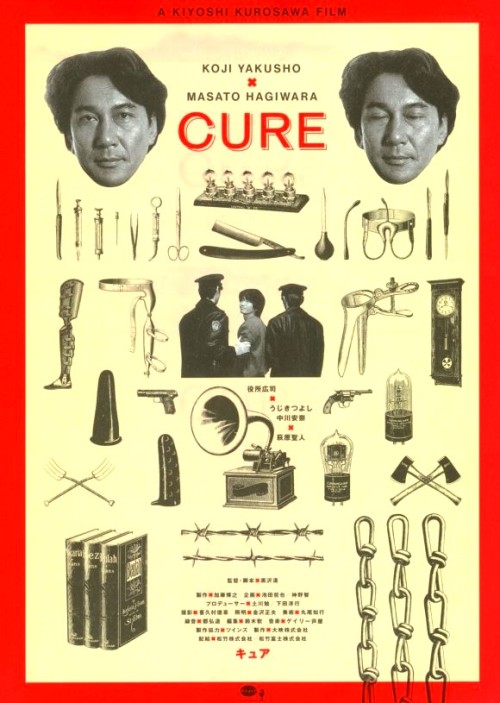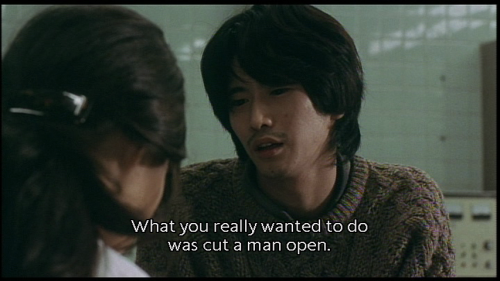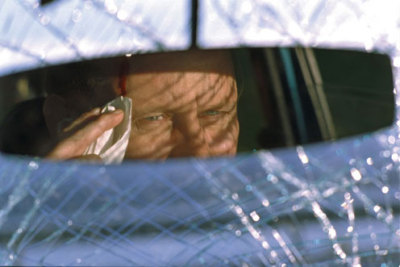Cure, directed by Kiyoshi Kurosawa, and Insomnia, directed by Erik Skjoldbjaerg, are two mystery films from 1997. Each film begins with a murder, and ends with the consequences or implications of another murder. Both features consist of blues and grays hazy as the skies, or pristine clear like a blade's glare. This goes not only for the images on screen, but for the sentiments and choices of the characters.
Insomnia tells the story of Swedish investigator Jonas Engström (Stellan Skarsgård), who, with his partner, is called to Norway to help solve a murder. Engström is hampered by working where long hours of sun allows him little or no sleep each night. The case is further complicated when Engström must cover up his own crimes.
Cure follows police detective Kenichi Takabe (Kôji Yakusho) on the trail of deaths with only two things in common: an "x" carved in each victim's neck; and the killers near the crime scene, remembering nothing. Takabe is determined to find the catalyst for these shocking murders, but this catalyst may prove too dangerous for him to handle.
These detectives encounter suspects who are sly, manipulative, and sometimes enigmatically helpful. Engström's and Takabe's private desires compromise them in difficult moments. Their relationships with women are troubled: Takabe has everyday struggles taking care of his sick wife, while the middle-aged bachelor Engström fumbles his interactions with attractive women.
Cure's psychological explanation for the catalyst's methods take on an almost supernatural aspect. The unclear tone and at times obscure details can bother those who prefer a more grounded mystery that doesn't edge so close to ridiculousness. The film is often called "dreamlike," and is elegant in its way, though the word "nightmare" better describes some of the horrific (and horror-like) events that occur.
The tensions in Insomnia center around men who wish to protect their self-interests; how these men use and abuse their skills to the benefit and misfortune of themselves and others. The film itself isn't misogynistic, but some of the characters are. Everything around the main male characters frustrates them - their living situation, the women around them, the jobs they perform. What's particularly hard for these men to admit is that it's their own faults that escalate frustrations into serious matters.
These films explore the destructive emotions seething under composed appearances. Much of each film is slow, quiet buildup, setting up shocks that are genuinely startling. Insomnia has more outright gunplay and action, while in Cure the violence -the murders are nearly all offscreen- has a lingering quality that still made me gasp several times.
Guilt and regret connect the detectives in these films, guilt for what they've done and regret for what they've failed to do.
- - -
- A remake of Insomnia, set in Alaska, was directed by Christopher Nolan in 2002.
Subscribe to:
Post Comments (Atom)





4 comments:
Fascinating review.........
Thanks for your comment on my blog! I took the liberty of subscribing to your site and adding a link to your site as well.
I really like your site and some of your insights in film.
Thank you!
I am one of the few who prefer the remake of INSOMNIA to the original. It just clarifies the plot nicely.
Great site!
Thanks for the comment, shahn!
Sometime I will watch the remake, to compare. One can't immediately dismiss a film because it's a remake!
Post a Comment